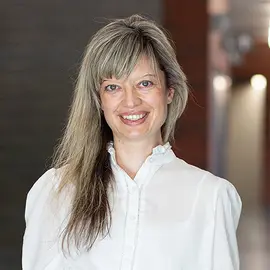Language learning in the age of Artificial Intelligence (ALIA)
Neural translation systems are transforming multilingual communication – and increasingly also in spoken contexts. While this development is opening up new opportunities, it is also raising didactic questions for foreign language teaching. Which skills will be important in the future if AI can offer support with both understanding and speaking?
Description
Neural translation systems such as DeepL and Google Translate have fundamentally changed written multilingual communication. With rapid advancements in the field of artificial intelligence, these tools are now becoming increasingly significant for spoken communication – for example in conversations, discussions and presentations. While these developments are opening up new opportunities, they also pose profound didactic challenges for foreign language teaching.
To shape this transformation in a constructive manner, there is a need for the targeted promotion of AI literacy, i.e. the critical, reflective and competent use of AI-supported technologies. Until now, however, a thorough exploration of how translation tools might be integrated into spoken communication in a school context has been lacking. This is where the AILA project comes in: the aim is to strengthen language teachers’ digital literacy as part of their training, prepare them for these technological developments and enable them to further enhance foreign language teaching through the creative and considered use of AI-supported translation tools. At the same time, teachers should be supported in sustaining and fostering pupils’ motivation to learn foreign languages in the digital age.
As part of the project, learning units will be developed, tested and evaluated for lower secondary education (Sekundarstufe I). Key topics include:
- AI literacy in foreign language teaching
- Reflective use of machine translation
- Differences to direct communication in the foreign language
- The added value of multilingualism and intercultural competence in the age of AI
The three-year project is being carried out in close cooperation with partner schools in the cantons of Neuchâtel and Zurich. Through participatory development and the sustainable implementation of materials, the project will ensure that the results can be used beyond the project's duration and made available to other schools.
Key data
Co-Projectlead
Prof. Dr. Caroline Lehr, Prof. Dr. Sara Cotelli (Université de Neuchâtel)
Project team
Elana Summers, Jeremy Jaquet (Université de Neuchâtel)
Project partners
Université de Neuchâtel
Project status
ongoing, started 09/2025
Institute/Centre
Institute of Multilingual Communication (IMK)
Funding partner
Bundesamt für Kultur BAK
Project budget
180'000 CHF
